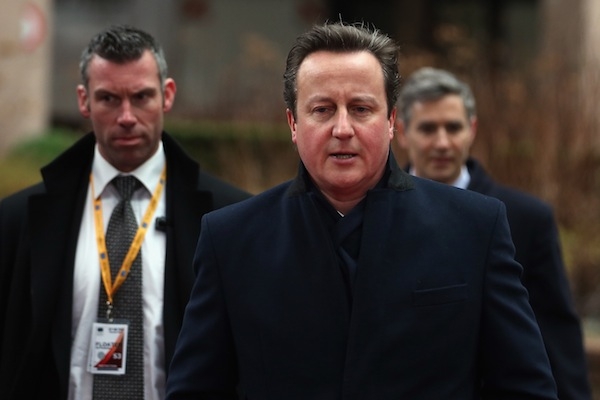In February, David Cameron managed to rally of group of likeminded countries to agree a historic cut to the EU’s long-term budget. However, due to the maddening complexities involved in the EU politics, a cut isn’t always a cut (just as an opt-out isn’t always an opt-out). Which is why, while all eyes in Westminster were on the scrap between George Osborne and Ed Balls over the Comprehensive Spending Review, the European Commission’s presentation today of its draft budget for 2014 – the first under the new deal – is politically significant.
For Cameron, there is both good and bad news. The good is that the 2014 budget does indeed represent a cut in spending – from €144.5bn in 2013 down to €135.9bn, a reduction of 5.8 per cent. This is psychologically and politically significant as it shows that things in Europe don’t always have to move in the same direction.
The bad: the cut exits because the 2013 EU budget has been retroactively increased under a procedure known as ‘amending budgets’. This practice involves billions of euros loaded onto a given years’ budget after it has already been agreed, allegedly due to funding gaps. The European Commission and the European Parliament – love this mechanism as decisions are made under majority voting rather than unanimity, as is the case with the long-term EU budget.
Furthermore, the substance of much of the budget remains unreformed. Distorting farm subsidies continue to dominate – in fact in a return to the bad old days (think wine lakes and food mountains), under new rules member states will be allowed to link a proportion of these to how much they produce. Regional development subsidies will also continue to be needlessly recycled between the richer member states.
Meanwhile, on the day that George Osborne announced that Whitehall departmental budgets would see further cuts and that the sector payroll by an additional 144,000 by 2016, the Commission proposed to increase to the cost of the Brussels bureaucracy by 1.5 per cent. This includes a 7.2 per cent on EU officials’ pensions, a 3.8 per cent increase for some of the EU’s 54 quangos, while Baroness Ashton’s External Action Service has been awarded a 3.2% increase at the same time as the FCO is cut by 8 per cent.
The European Parliament also sees a 1.7 per cent increase in its budget (in another case of extraordinary timing, only a day after a video emerged of two MEPs pushing and shoving a journalist who challenged them for allegedly signing in to claim to their daily allowance before ‘sodding off’ straight away).
So what does all of this tell us? Well, notwithstanding that the cut in next year’s budget rests on MEPs approving the underlying deal painstakingly negotiated by EU leaders – which they are currently threatening to veto without a number of concessions – the EU budget itself simply isn’t sustainable in the long-term. If possible, reforming the EU budget – for example by limiting EU regional spending to poorer member states – should be a key plank of Cameron’s renegotiation strategy.
The UK’s contribution to the EU budget is often cited as one of the main irritations of membership; a recent Open Europe/ComRes poll found that over 30% of respondents included it as one of their top four areas to target during any renegotiation. Although the EU budget is negotiated in seven year frameworks, MEPs’ demands for a ‘mid-term review’ at the end of 2016 prove to be either a blessing or a curse, perfectly timed to take place just ahead of that potential referendum in 2017.
Pawel Swidlicki is a research analyst at Open Europe.






Comments